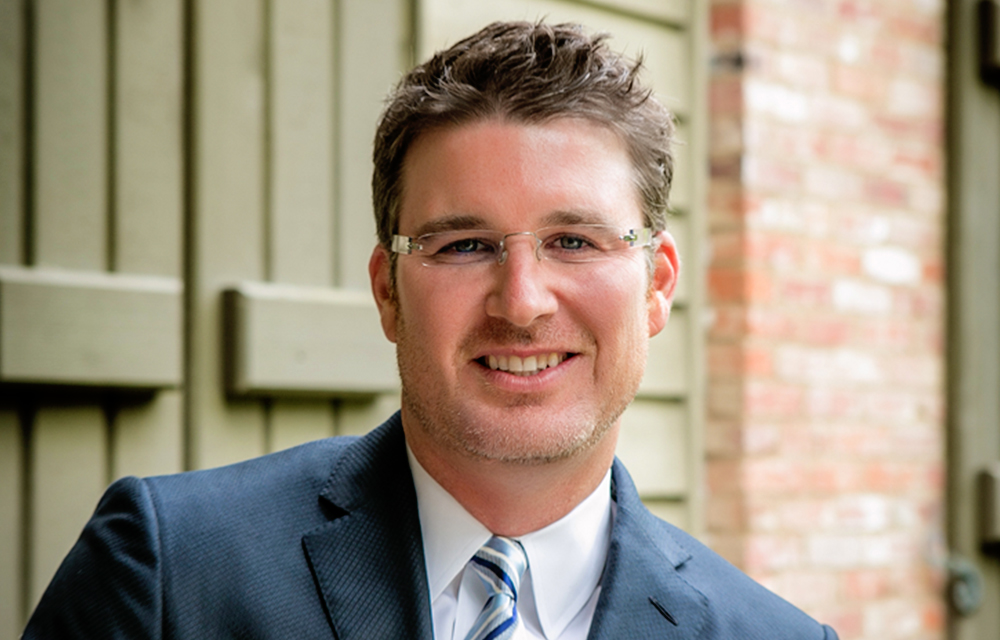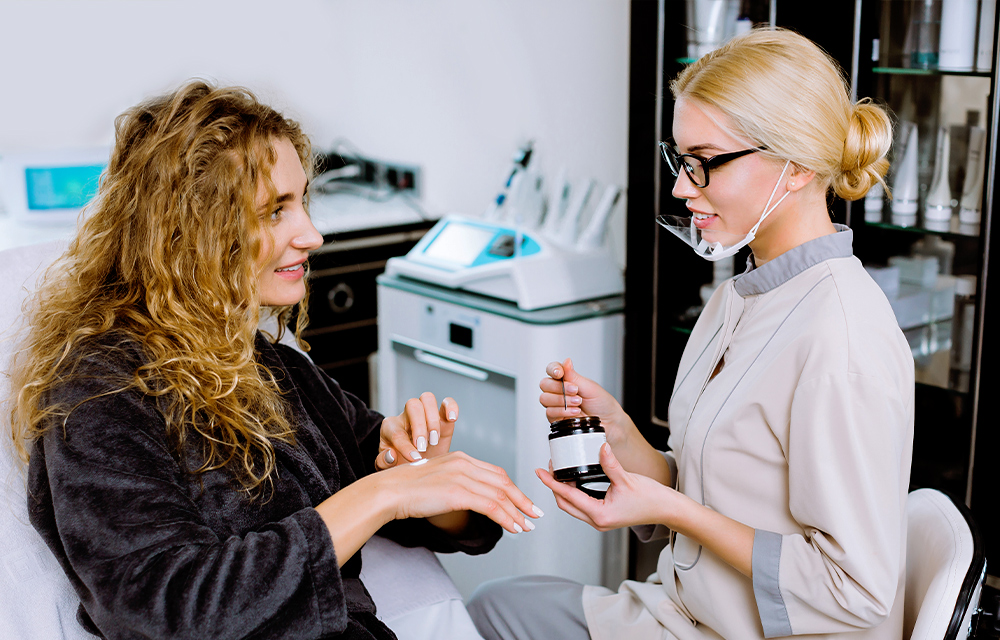Doctor Adair Blackledge isn’t your average facial plastic surgeon. With a background in fine art and a practice dedicated solely to the face, he sees each patient as a masterpiece just waiting to be perfected. Dr. Blackledge focuses on his client’s natural beauty, therefore, it’s no surprise that his practice’s sales approach is also an organic part of each client’s experience. Here, he shares what makes his office unique, how he sets his team up for success, and why incentivizing sales might be the wrong approach.

Can you provide a brief background of yourself and your business?
I’m a facial plastic surgeon and I’ve been working in the industry for 17 years. I have 13 aestheticians on staff and, on average, we see 100 patients a day. I’m also a key opinion leader for Obagi, SkinCeuticals, SkinMedica, and Revision Skincare lines. But, aside from skincare, my practice specializes in facelifts, neck lifts, and facial rejuvenation surgery.
Why the special focus on the face?
For one, I’m a perfectionist, so trying to do the whole body would drive me crazy. My background is in art so I look at the skin as a canvas: If my facelifts look really good, but the patients’ skin doesn’t, then I’m not maximizing my patients’ potential. That’s why I’m so big on making sure that our patients aren’t just doing injectables or surgery, but that they’re also taking great care of their skin. Not all of our patients are candidates for surgery or injectables, but 100% of them need great skincare.
So that means your practice is also selling skincare products? Do you incentivize your sales?
Yes, we sell products, but no, I don’t incentivize sales of those products. I firmly believe that if you have talented aestheticians that are really good at treatments and are passionate about what they do, then they’re going to sell products without being incentivized. Rather, I implement consultative sales strategies – equipping them with the right kind of tools and training, so they have the appropriate knowledge to inform and build trust with the patient.
But wouldn’t an incentive push your employees to sell more?
I think, no matter how good you are, when you take that approach, it can come across as sales-y. I personally don’t like the feeling of being pushed to buy something. I think it kills customer loyalty because, when patients sense that they’re being sold to, they realize that you’re not loyal to them, you’re loyal to the dollar.
People are always surprised to learn that we don’t incentivize sales, but, every year, we sell over one million dollars in products in the first four to five months alone. Clearly, this approach works.
You mentioned how your aestheticians are passionate. What other traits or skills do you look for when hiring employees?
For me, it’s not a must that candidates have previous beauty or aesthetic experience. They simply have to be service-oriented; they must have a genuine desire to help people. In fact, the majority of my employees did not work in the cosmetic industry before they started working in my practice. And that’s okay because as long as they have that natural desire to serve patients, they will also be eager to learn all the different ways that they can do that. And that’s where I come in to train and teach them.
Have you ever found any challenges with this hiring approach?
The only thing that might ever be an issue is an employee feeling uncomfortable with educating patients. But, if they don’t feel comfortable doing that, then I haven’t done my job correctly in hiring and training them.
Why is making sure employees are adequately equipped to educate patients so important?
Patients who are educated are going to be loyal to your practice. They realize that you’re going above and beyond because you believe that much in how the treatments and products can positively impact their life. It’s that whole idea of passion and the desire to serve again.
How do you train your team to ensure they have the appropriate knowledge?
First, every aesthetician needs to spend at least one year working in reception. They need to have answered a year’s worth of questions on products and services before they move into a treatment role. Then, they also need to be able to do every job in the building. They all train by shadowing other team members. All of my aestheticians can scrub in and assist me with surgery. That way, when they’re talking to a patient about a facelift, they can actually go into detail about what that experience is like as opposed to just talking about what they’ve seen and heard outside the practice.
What’s your number-one piece of advice for practices looking to implement this kind of holistic sales strategy?
You have to invest in it. The biggest mistake I see with other practices is that they want to sell a lot of products, but they don’t want to hire people to do that. You have to have people to educate patients – that’s the most important thing. You can’t cut corners to avoid overhead; you just won’t sell products that way.
This blog post is Part 3 of our 4-part series, The Influence of On-site Tactics on Medical Aesthetic Practice Sales. Be sure to check out the other posts, including the second half of our interview with Dr. Blackledge on the importance of the med spa patient experience:


